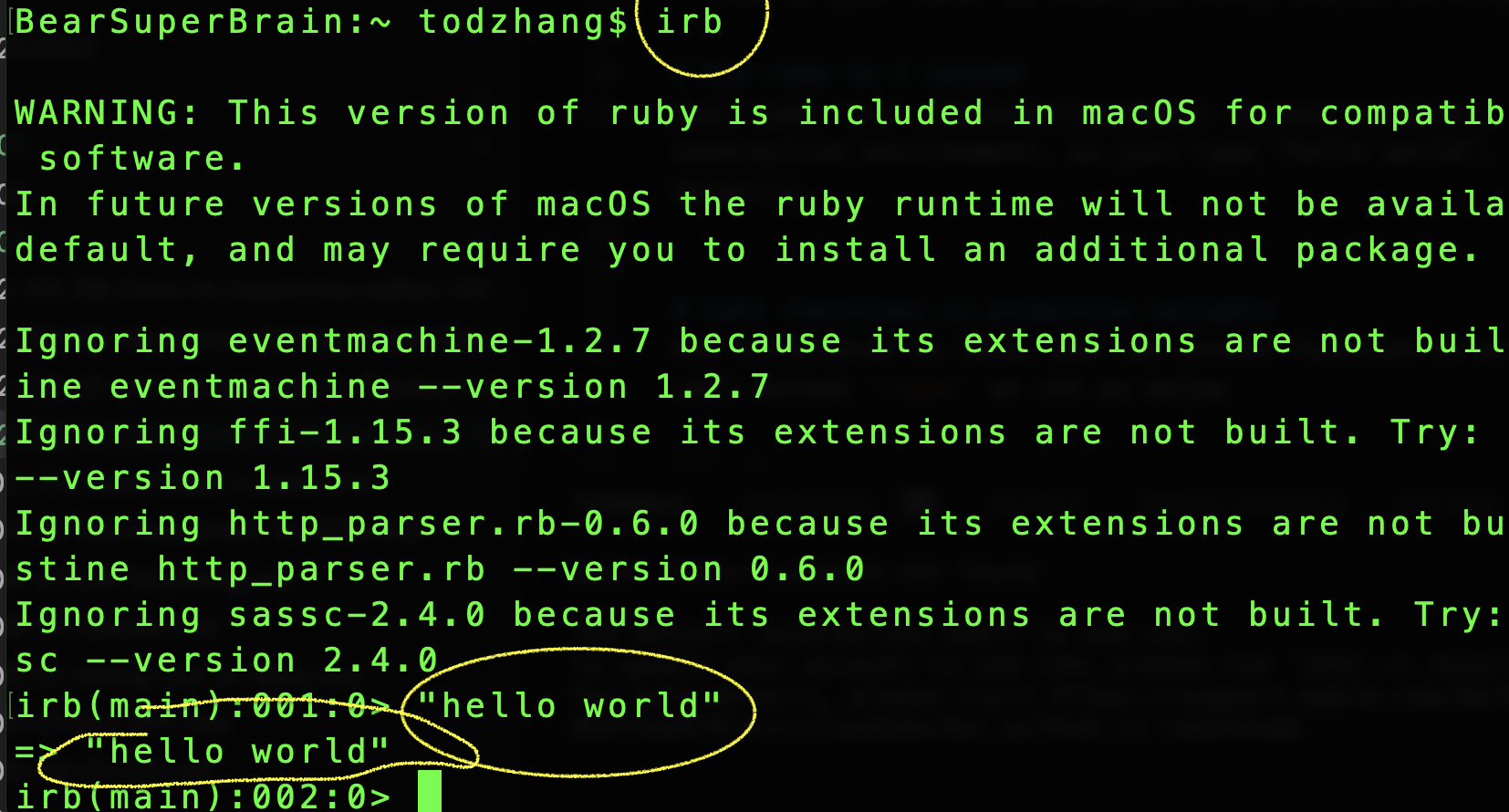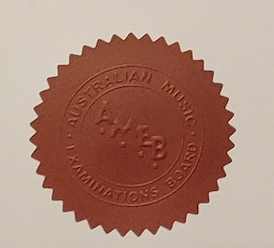Ruby from zero to hero
This is your life. Do what you love, and do it often.
Run ruby in 1 second
Just type irb (Interactive Ruby) in your terminal, you’ll get get a Ruby interactive environment, so just type “hello world”, you’ll see the result directly.

Or just run “puts todd” it will output it to console.
Call functions in primitive variable
One difference to Java, you can invoke function on primitive variables, e.g. call method times on int as below
3.times do
print 'Welcome '
end
Call a function directly, no need parenthesis
In other language, such as Java, you have to suffix () even there is no any arguments. However in Ruby, it’s save your time for such boilerplate
"todd".reverse
"todd".length
"todd"*5
To call a function of String on integeger won’t work, so suffix to_s after number and try
168.to_s.reverse
Similarly, you can call to_i to convert to integer and to_a convert to array
Functions on list
[12,52,26].max
! is another syntax sugar
Please see the big exclamation at end of a method ticket.sort!, this means the call method will alter the variable for good. On the other hand, no ! means leave original variable NOT changed
ticket=[15,6,98,55]
puts ticket
puts "======"
ticket.sort!
puts ticket
Methods chain
You can join multiple methods calls in a chain
puts poem.lines.reverse.join
hash map in Ruby
books={}
books["Gravitys Rainbow"]=:splendid
Did you realized the : in front of splendid? This is actually indicate it’s a symbol
When you place a colon in front of a simple word, you get a symbol. Symbols are cheaper than strings (in terms of computer memory.) If you use a word over and over in your program, use a symbol. Rather than having thousands of copies of that word in memory, the computer will store the symbol only once.
To loop hash map values
ratings = Hash.new{0}
books.values.each{ |rate|
ratings[rate]+=1
}
puts ratings
To loop a fixed times by assigning a primitive number
Different to Java or other language, you can call method on top of a int value directly, then apply functions in a block .
Moreover, you can surround input variable for the block with two pipes symbol.
5.times {print "*===="}
5.times { |time|
puts time
}
parenthesis is optional and better to not
with or without parentheses is the same to Ruby, but the version without parentheses is a bit easier to read. And it saves you valuable typing time!
puts "Hello"
puts("Hello")
def tame(number_of_shrews)
number_of_shrews.times {
puts "tamed a shrew"
}
end
tame(5)
To convert JSON to hashmap easily
s = get_shakey
s["William Shakespeare"].each { |key,val|
puts val["title"]
}
High end functions in hashmap
You can call select to filter hashmap then use count to gather number of occupance
def count_plays(year)
s = get_shakey
s["William Shakespeare"]
.select { |k, v|
v["finished"] == year
}.each { |key, val|
puts val["title"]
}.count
end
puts count_plays(0)
–End–

